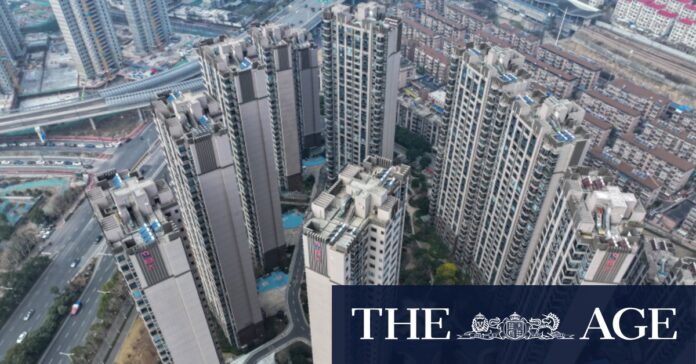[ad_1]
“In my view, the more the government suppresses negative information about the economy, the less confidence people have in the actual economic situation,” said Xiao Qiang, a research scientist at the School of Information at the University of California, Berkeley.
New foreign investment in China fell 8 per cent in 2023 to its lowest level in three years. China’s CSI 300 index, which tracks the biggest companies listed in Shanghai and Shenzhen, fell 12 per cent last year, compared with a 24 per cent gain in the S&P 500. The Chinese index is down another 5 per cent this year to nearly five-year lows.
Premier Li Qiang has called for more effective measures to stabilise the stock market against the backdrop of reports of a possible rescue package for the equity market.
Xiao said he started noticing in the latter half of 2023 that Chinese censors were quicker to take down many financial news articles. Among them: a December article on the financial news site Yicai that cited research stating that 964 million Chinese people earned less than $US280 a month.
This month, a documentary from NetEase News about migrant workers enduring extremely low living standards was also taken down from the internet. Search results of the documentary Working Like This for 30 Years were also restricted on Weibo, a social media site similar to X (formerly known as Twitter).
Since June, Weibo has restricted dozens of accounts from posting after, it said, they “published remarks badmouthing the economy” or “distorted” or “smeared” China’s economic, financial and real estate policies.
Loading
Weibo warned users in November not to be “maliciously pessimistic” about the economy or spread negative sentiments. Last month, the company said it hoped users would help “boost confidence” in the economy’s development.
Other social media services, too, are moving to censor negative speech about the economy. Douyin, the Chinese version of TikTok, has specific rules prohibiting the “malicious misinterpretation of real-estate-related policies.”
Liu Jipeng, a dean at China University of Political Science and Law in Beijing, was prohibited from posting or adding new followers on Douyin and Weibo last month after he said in an interview that it wasn’t the right time to put money into stocks. He also wrote on Weibo, where he has more than 500,000 followers, that it was difficult for ordinary people to invest safely because there were so many unethical institutions. His Douyin account, where he has more than 700,000 followers, stated that the user “is banned from being followed due to a violation of community rules.”
Banks and securities firms are also under intense scrutiny for the content of their economic research.
In June, the Shenzhen Securities Regulatory Bureau warned China Merchants Securities, a Shenzhen-based brokerage, about a “carelessly produced” report a year earlier warning that domestic stocks would remain under pressure because of the economy.
Loading
In July, Goldman Sachs sparked a sell-off of Chinese bank stocks after one of its research reports put a “sell” rating on three major lenders and warned that banks might struggle to maintain dividends because of losses from local government debt. The Securities Times, a state-owned financial newspaper, struck back, saying that the report was based on a “misinterpretation of the facts” and that “it is not advisable to misunderstand the fundamentals of Chinese banks.”
One economist at a foreign securities firm said a Chinese government official had recently asked the economist to be “more thoughtful” when writing research reports, especially if the content may be construed negatively. The economist asked not to be identified for fear of reprisal.
But the pressure campaign has intensified so much that it is turning some who are usually defending Beijing’s policies into critics. Hu Xijin, an influential commentator and a former editor-in-chief of Global Times, a Communist Party newspaper, wrote on Weibo that it was the job of influencers to “constructively help” the government identify problems, “rather than actively covering them up and creating public opinion that is not real.”
This article originally appeared in The New York Times.
The Business Briefing newsletter delivers major stories, exclusive coverage and expert opinion. Sign up to get it every weekday morning.
[ad_2]
Source link



